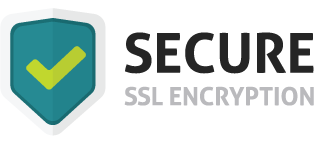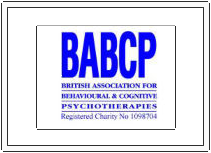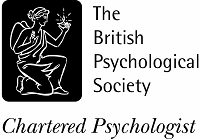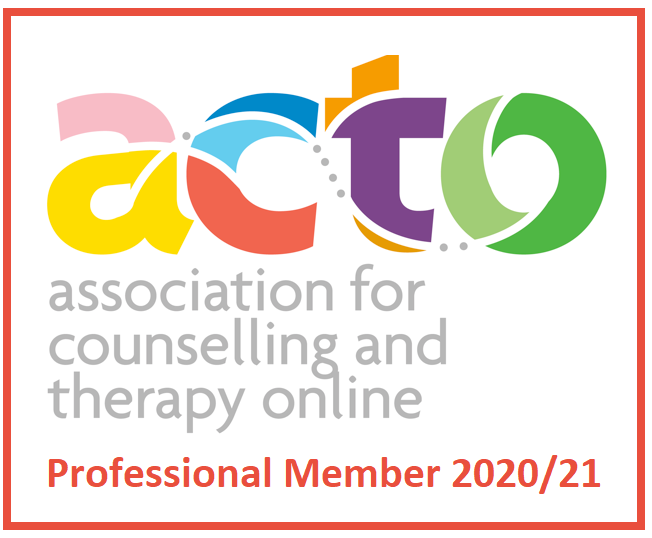Therapy options and fees
An Initial Consultation Session lasts 90 minutes and costs £195. A brief summary report is available on request for an extra fee. Ongoing Therapy Sessions cost £130 per 50 minute session. Payment is taken at least 48 hours prior to sessions. Therapy is normally by video call, but I may be able to accommodate occasional in person sessions in my Worthing consulting rooms. Therapy has the following three elements:
Assessment: The assessment phase typically lasts at least two sessions, with more complex assessments sometimes requiring further sessions, especially if a diagnosis is sought. The diagnostic assessment process and fees for ADHD, ASD or Tourettes is different than therapy assessments. Please contact me directly for details
This email address is being protected from spambots. You need JavaScript enabled to view it. or see https://neurodiverseonline.com for further information. Typically these first few meetings are about getting to know one another. The Initial Consultation is 90 minutes (£195) and subsequent assessment sessions are 50 mins (£130). The Initial Consultation will involve the completion of some questionnaires prior to the appointment and if you require it includes a brief report for an extra fee. Over the assessment sessions you can expect to share your concerns, experiences, and personal history. You’ll learn about my therapy style, practice policies, and my assessment of your concerns. My objective is to gather information, and in collaboration with you offer an understanding of what started and now maintains your problems (known as a 'psychological formulation'). I am happy to include a diganosis (if appropriate) for those patients who require this. During the assessment phase we will both be figuring out if we are a right fit for each other, and therefore there is no commitment on either side for us to continue working together. It may be that the assesment reveals issues that would be better treated by another clinician and if that is the case I will signpost you to another service and we will finish working together at that point. Assuming we agree to start therapy, we will set some goals and complete a written Therapy Contract together. This clearly indicates the focus for the work, how we will work togther, how long it is likely to take, information on appointment times and fees, and when we will review.The therapy: Therapy sessions last 50 minutes and usually take place by video call. I have limited capacity for face to face clients. Ongoing therapy sessions will focus on your goals and be informed by our formulation and treatment plan. We will review your progress at the end of every month, using questionnaires to assist our understanding. Sessions have a common structure: they have a beginning (checking in how the previous week has been and then reviewing any home-based tasks that have been completed); a middle (focusing on one or two problems and sharing techniques to overcome them), and an ending (reviewing the agenda, providing feedback and setting home-based tasks for the following week).
End of therapy review: Therapy always ends with a review to discuss your progress and next steps. It may be that you are feeling much better and ready to go it alone and don’t require any more help. If there are outstanding problems and you would like further help, we may agree further sessions.
Please note that my fees are reviewed 1st Jan every year.
How do I know therapy will suit my kind of problems?
I will conduct an initial face to face assessment via secure video call, or in person at my Worthing consulting rooms. I will also ask you to complete some questionnaires. Depending on my assessment of your needs I will recommend a treatment plan. This may or may not be with me, and if I feel that you require different expertise than I possess I will signpost you to another professional at that point. If we decide to continue together, we will contract 6 sessions initially. For some problems just 6 sessions might be sufficient, especially if there is a single problem that is milder. For issues of moderate severity approximately 12 sessions may be sufficient. If you have long standing problems, or they are more severe, more sessions will be needed. Please note that I do not work with people who have substance misuse as their primary problem. I am also not able to work with severe self-harm or who are actively suicidal: given I work remotely, it would not be ethical or safe for me to work with you if you are presenting a serious risk to yourself or others. For more information about the sorts of problems I specialise in, please consult my home page.
Therapy models
I specialise in CBT, but as a clinical psychologist I am also trained in a broad range of other therapy approaches. The therapy I offer is informed by Cognitive Behavioral Therapy (CBT), Compassion Focused-Therapy and Acceptance and Commitment Therapy. Mindfulness is a thread throughout.
{slider title="What is Acceptance & Commitment Therapy (ACT)?" open="false" alias="Acceptance-Commitment-Therapy" class="icon"}
What is Acceptance & Commitment Therapy (ACT)?
ACT, like Compassion focused therapy is one of the CBT ‘Third Wave’ therapies. It is a bit different to CBT in that ACT recommends accepting your negative thoughts, rather than challenging them. While CBT would look for the evidence for and against an unhelpful thought, ACT would instead teach you to recognise the thought and then let it go, without engaging in an argument with it. Thoughts are accepted as just thoughts, so that rather than feeling like your thoughts define you, you can step outside them and see them as just thoughts. For example, you might say to yourself ‘I’m having the thought that…’ Techniques such as defusion, mindfulness, metaphors and using language in different ways are all used in ACT. It encourages you to commit to a more meaningful life, despite the inevitable stresses and difficulties that we experience as humans.
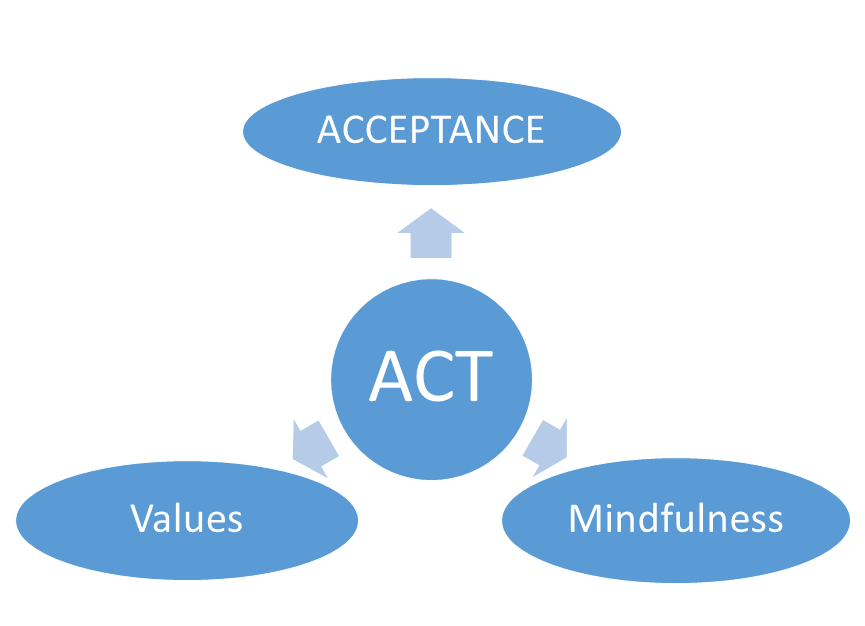
What’s it like having an ACT session?
ACT features techniques centred on the three circles above: values, mindfulness and acceptance. ACT teaches you how to commit yourself to values-based living, whether that be relationships, career, beauty, health, spirituality – whatever gives your life meaning and purpose. Mindfulness is about being aware in the present moment without any sense of judgement. By being mindful, we can distance ourselves from, or ‘defuse’, upsetting thoughts. Mindfulness practices will be taught and practised in session. Acceptance in ACT is about giving up the constant struggle against pain and distress. Techniques and stories like the Quick Sand metaphor will help you to see that by accepting and allowing these difficult experiences, less pain is felt in the long term. Like CBT and CFT, ACT will involve some talking, writing and practising techniques like relaxation or imagery.
The Quicksand metaphor
When you find yourself in quicksand the only way to get out is to stop fighting and struggling. If you continue struggling you will sink deeper. It’s like that in life – sometimes we do things that get us into even deeper quicksand even though we think we are trying to help ourselves. The old problem-solving methods we’ve been using for years may be making the issue worse, and have only served to get us deeper and deeper into distress. To get out of quicksand the only way is to lie flat, spread-eagled to maximise body contact with the sand. You are less likely to sink and may be able to roll to safety.
How ACT is delivered
The number of sessions you can expect in ACT will vary according to the nature of your difficulties. However, generally speaking it is considered a relatively brief therapy like CBT and anything between 6-20 sessions is probably the norm.
A really good book you might like to try is Harris, Russ. (2008). The Happiness Trap. London: Constable-Robinson
Purchase ‘The Happiness Trap’
{source}<iframe style="width:120px;height:240px;" marginwidth="0" marginheight="0" scrolling="no" frameborder="0" src="//ws-eu.amazon-adsystem.com/widgets/q?ServiceVersion=20070822&OneJS=1&Operation=GetAdHtml&MarketPlace=GB&source=ac&ref=tf_til&ad_type=product_link&tracking_id=onlinepsychol-21&marketplace=amazon®ion=GB&placement=184529825X&asins=184529825X&linkId=b46fc651b59efb9903a7aef0634d29d3&show_border=false&link_opens_in_new_window=false&price_color=333333&title_color=0066c0&bg_color=ffffff"> </iframe>
</iframe>
{/source}
A slightly longer, but still fairly easy to read is Spencer Smith & Steven Hayes (2005) Get Out of Your Mind and Into Your Life: The New Acceptance and Commitment Therapy. New Harbinger.
Purchase 'Get out of Your Mind and Into Your Life'
{source}
<iframe style="width:120px;height:240px;" marginwidth="0" marginheight="0" scrolling="no" frameborder="0" src="//ws-eu.amazon-adsystem.com/widgets/q?ServiceVersion=20070822&OneJS=1&Operation=GetAdHtml&MarketPlace=GB&source=ac&ref=tf_til&ad_type=product_link&tracking_id=onlinepsychol-21&marketplace=amazon®ion=GB&placement=1572244259&asins=1572244259&linkId=305e6ea3c32da0952d2c4b762cf6fd92&show_border=false&link_opens_in_new_window=false&price_color=333333&title_color=0066c0&bg_color=ffffff"> </iframe>
</iframe>
{/source}
The Getselfhelp website has some good videos showing some ACT metaphors like the Quicksand metaphor, or Passengers on the Bus’. https://www.getselfhelp.co.uk/act.htm
{/sliders}
{slider title="What is Cognitive Behavioural Therapy (CBT)?" open="false" alias="cognitive-behaviour-therapy-cbt" class="icon"}
What is CBT?
CBT (Cognitive Behavioural Therapy), is a type of therapy or counselling that has become popular all over the world because it is so effective and relatively quick to work. Many scientific studies have shown CBT to work for people of different ages and with different problems. It is used to help mental health problems like anxiety, stress and depression. It is also helpful for relationship issues, coping with physical health problems, addictions and even insomnia. CBT is quite a practical approach - it focuses on changing our thinking patterns so we can change our behaviour more effectively. CBT works the other way round too: looking at how changing our behaviour can change how we feel and think. The body isn’t forgotten either – CBT always looks at how our emotional wellbeing affects our bodies and how our physical state in turn affects our emotions Finally, CBT doesn’t forget that we all live in a certain social context. What’s going on around us will also affect our wellbeing – whether that be problems in our family, work or neighbourhood.
How CBT is delivered?
The number of CBT sessions you need depends on the difficulty you need help with. Often this will be between five and 20 weekly sessions. CBT is mainly concerned with how you think and act now, instead of looking at and getting help with difficulties in your past.
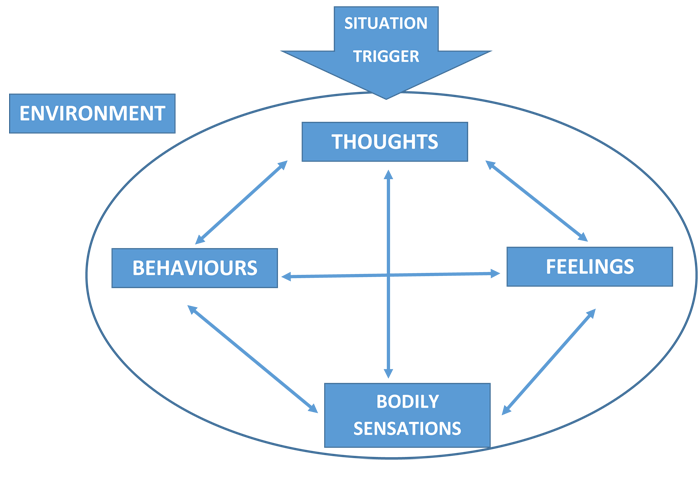
What’s it like having a CBT session?
Although CBT is a form of talking therapy or counselling, it is more practical than many other forms of talking therapy. In a typical CBT session, you will be talking with your therapist. But there will also be other activities like practising new skills, writing and drawing. Your therapist might draw a ‘map’ of your problems like the one above. Seeing how everything fits together can be helpful in figuring out how your problems started and what keeps them going. Just talking through your problems with someone who really listens and cares can be helpful, but what CBT does is to go a step further: your therapist will also teach you tools and techniques to change the things that are bothering you. During your session you’ll be encouraged to write down these ideas to try out at home. In fact, ‘Homework’ is a big part of CBT. Anyone who has tried to give up smoking, lose weight or get fit will know – changing habits is not easy and takes practice. It’s the same with negative thinking styles and unhelpful behaviours. But the more you practise your new ways of thinking, feeling and doing, the faster you will feel better. So, CBT really is about you taking an active part in your therapy, and trying out new ways of feeling, thinking and acting with your therapist’s guidance and support.
A good brief introduction to CBT is Greenberger, D. & Padesky, C. (2015). Mind Over Mood (2nd ed). The Guilford Press
Purchase Mind Over Mood. Please note that there is a much cheaper version available - just click on this link below and you will see.
{source}
<iframe style="width:120px;height:240px;" marginwidth="0" marginheight="0" scrolling="no" frameborder="0" src="//ws-eu.amazon-adsystem.com/widgets/q?ServiceVersion=20070822&OneJS=1&Operation=GetAdHtml&MarketPlace=GB&source=ac&ref=tf_til&ad_type=product_link&tracking_id=onlinepsychol-21&marketplace=amazon®ion=GB&placement=0898621283&asins=0898621283&linkId=d923cc4143a3e44d3702907381bf894f&show_border=false&link_opens_in_new_window=false&price_color=333333&title_color=0066c0&bg_color=ffffff"> </iframe>
</iframe>
{/source}
{/sliders}
{slider title="What is compassion focused therapy (CFT)?" open="false" alias="compassion-focused-therapy-CFT" class="icon"}
What is compassion focused therapy (CFT)?
CFT is part of the broader ‘third wave’ of cognitive behavioural therapies. It helps individuals to support and soothe themselves when faced with self-critical thoughts. The word compassion means a sensitivity to suffering in ourselves and in others, combined with a motivation to alleviate that suffering. So compassion isn’t ‘fluffy’ and doesn’t mean giving in to pain. It actually requires a lot of courage to face the emotional pain we feel in ourselves or see in others, encouraging us to do something about it with strength and wisdom. Compassion focused therapy recognises our common humanity and involves a deep commitment to work on the suffering that is part of being human. CFT draws upon CBT and other approaches like mindfulness, neuroscience and evolutionary psychology.
Compassion focused therapy suggests there are three types of emotion regulation system: Drive system, Threat system and soothing system. All are needed in everyday life, but if they are out of balance we can experience suffering.
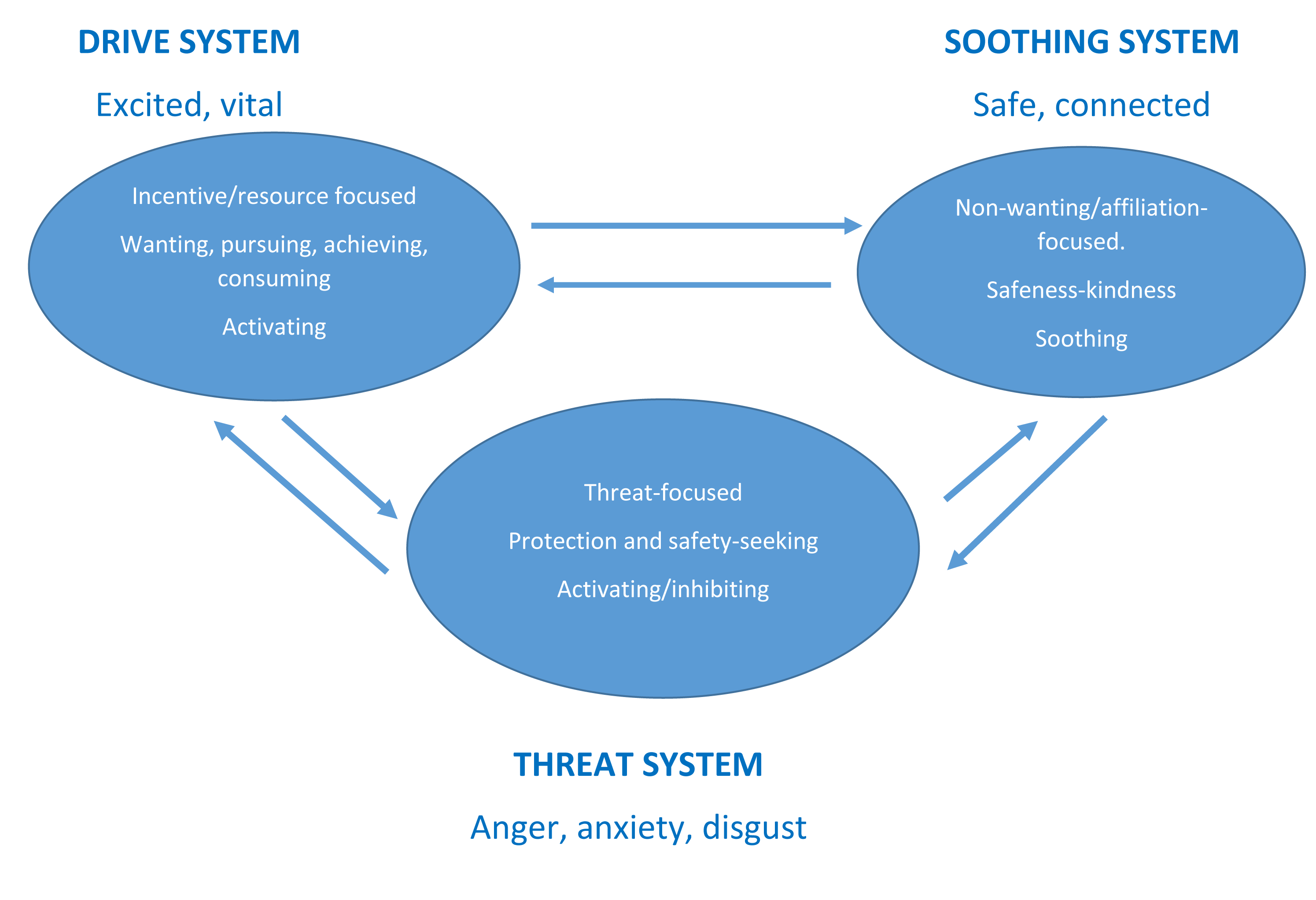
Figure adapted from Gilbert, P. (2009). The Compassionate Mind.
What’s it like having a CFT session?
Compassion focused therapy teaches you techniques to balance out these three systems. Our ‘Soothing system’ often gets neglected in everyday life, so in CFT you will learn body-focused practices such as relaxation or imagery exercises to bring on a felt sense of calm and compassion in your body as well as your mind. Some sessions will feature writing, but whatever technique your therapist invites you to try, all will have the aim of developing a kind and compassionate mind-set towards yourself and others.
How CFT is delivered
The number of sessions you can expect in CFT will vary according to the nature of your difficulties. However, generally speaking it is considered a relatively brief therapy like CBT and anything between 6-20 sessions is probably the norm.
For more information see the Compassionate Mind Foundation website https://compassionatemind.co.uk/
A really good book you might like to try is Gilbert, P. (2009). The Compassionate Mind. London: Constable-Robinson
{source}
<iframe style="width:120px;height:240px;" marginwidth="0" marginheight="0" scrolling="no" frameborder="0" src="//ws-eu.amazon-adsystem.com/widgets/q?ServiceVersion=20070822&OneJS=1&Operation=GetAdHtml&MarketPlace=GB&source=ac&ref=tf_til&ad_type=product_link&tracking_id=onlinepsychol-21&marketplace=amazon®ion=GB&placement=1472135903&asins=1472135903&linkId=6180c8ff32b0d6e0e5b4b25e73e14805&show_border=false&link_opens_in_new_window=false&price_color=333333&title_color=0066c0&bg_color=ffffff"> </iframe>
</iframe>
{/source}
A shorter one version is Gilbert, P. (2010). Compassion Focussed Therapy: The Distinctive Features. London: Routledge.
{source}
<iframe style="width:120px;height:240px;" marginwidth="0" marginheight="0" scrolling="no" frameborder="0" src="//ws-eu.amazon-adsystem.com/widgets/q?ServiceVersion=20070822&OneJS=1&Operation=GetAdHtml&MarketPlace=GB&source=ac&ref=tf_til&ad_type=product_link&tracking_id=onlinepsychol-21&marketplace=amazon®ion=GB&placement=0415448077&asins=0415448077&linkId=6b4ebee6ae6b4962c35767044dc4cda2&show_border=false&link_opens_in_new_window=false&price_color=333333&title_color=0066c0&bg_color=ffffff"> </iframe>
</iframe>
{/source}
You can try out a compassionate relaxation exercise called ‘soothing rhythm breathing’ Listen to soothing rhythm breathing compassion and relaxation practice
{/sliders}
{slider Mindfulness}
36 minute Body Scan by Alesia https://soundcloud.com/alesia-moulton-perkins/alesia-body-scan
{/sliders}
Click on the links above to learn more about what these types of therapy are like.

